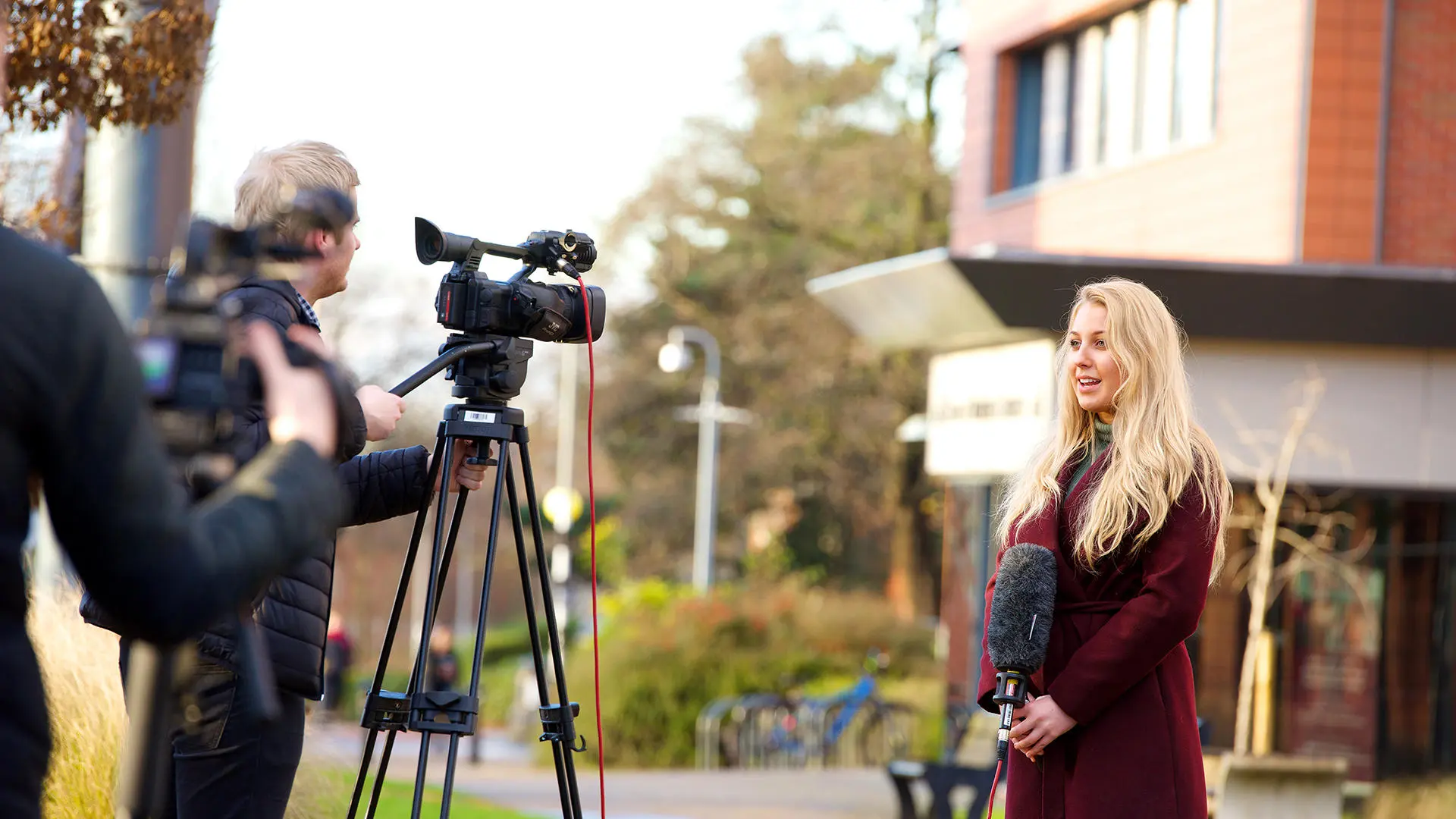The ever-growing links with the industry, largely through our successful, distinguished alumni, ensures current and dynamic courses are delivered to you.
We pride ourselves on keeping up to date with the changes in the sector and working across the different mediums so you can hone skills in broadcast, video, film, print or digital.
Why study with us
- Our Journalism courses are the best in the North West, according to the Guardian University Guide 2023. The NCTJ recently crowned UCLan the top-performing Higher Education Course.
- BA (Hons) Journalism is accredited by both the BJTC and the NCTJ. While our Sports Journalism course is the only one in the North to be accredited by the BJTC, which is recognised as a benchmark of excellence by the BBC and Sky.
- Our Journalism courses are ranked in the top 5 in the UK for overall positivity and academic support (National Student Survey, 2023) (compared with unis in the Guardian University Guide)
What can you do with a degree in journalism?
Our alumni work within TV, radio, digital, magazines and communications. As well as in professions where their transferable skills are in demand.
We hold a partnership with the UK’s largest multimedia publisher, Reach PLC. This collaboration means you’ll enjoy a day-release programme, working alongside journalists at Lancs Live. Along with our network of regular journalism industry guests and work placement opportunities.
Take the next step

Study a degree at UCLan
Interested in studying a degree with us? From exploring accommodation to visiting us at an Open Day, find out everything you need to know about life at UCLan.








